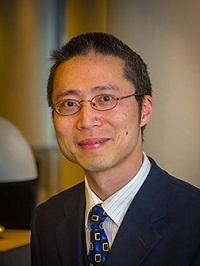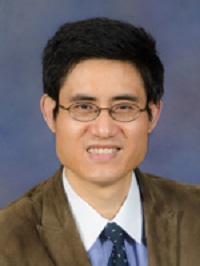
Professor Albert Y. Zomaya
University of Sydney, Australia
Abstract: The cloud is well known for its elasticity by leveraging abundant resources. Cloud data centres easily host thousands or even millions of multicore servers. Further, these servers are increasingly virtualized for the sake of data centre efficiency. However, the reality is that these resources are often relentlessly exploited particularly to improve applications performance. Although the elasticity facilitates achieving cost efficiency (or the performance to cost ratio), the ultimate efficiency in resource usage (or more broadly data centres) lies in scheduling and resource allocation strategies that explicitly take into account actual resource consumption. The optimization of resource efficiency in clouds is of great practical importance considering its numerous benefits in the economic and environmental sustainability. In this talk, we will discuss resource efficiency in cloud data centres with an example of large-scale distributed processing applications including scientific workflows and MapReduce jobs.
About the speaker: Professor Albert Y. Zomaya is the Chair Professor of High Performance Computing & Networking and Australian Research Council Professorial Fellow in the School of Information Technologies, Sydney University. He is also the Director of the Centre for Distributed and High Performance Computing which was established in late 2009. Dr. Zomaya published more than 500 scientific papers and articles and is author, co-author or editor of more than 20 books. He served as the Editor in Chief of the IEEE Transactions on Computers (2011-2014) and was elected recently as a Founding Editor in Chief for the newly established IEEE Transactions on Sustainable Computing. Dr. Zomaya also serves as an associate editor for 22 leading journals, such as, the ACM Computing Surveys, ACM Transactions on Internet Technology, IEEE Transactions on Cloud Computing, and IEEE Transactions on Computational Social Systems. Dr. Zomaya is the Founding Editor of several book series, such as, the Wiley Book Series on Parallel and Distributed Computing and Springer Scalable Computing and Communications. Dr. Zomaya was the Chair the IEEE Technical Committee on Parallel Processing (1999-2003) and currently serves on its executive committee. He is the Vice Chair, IEEE Task Force on Computational Intelligence for Cloud Computing and serves on the advisory board of the IEEE Technical Committee on Scalable Computing and the steering committee of the IEEE Technical Area in Green Computing. Dr. Zomaya has delivered more than 160 keynote addresses, invited seminars, and media briefings and has been actively involved, in a variety of capacities, in the organization of more than 600 conferences. Dr. Zomaya is the recipient of the IEEE Technical Committee on Parallel Processing Outstanding Service Award (2011), the IEEE Technical Committee on Scalable Computing Medal for Excellence in Scalable Computing (2011), and the IEEE Computer Society Technical Achievement Award (2014). He is a Chartered Engineer, a Fellow of AAAS, IEEE, and IET. Dr. Zomaya's research interests are in the areas of parallel and distributed computing and complex systems.

Professor Yang Xiang
Deakin University, Australia
Abstract: In the big data era, we face a diversity of datasets from a huge number of sources in different domains. These datasets consist of multiple modalities, each of which has a different representation, distribution, scale, and density. This evolution has influenced every technological, societal, and cultural aspect of human beings. It has been widely recognized that the power of knowledge from multiple disparate (but potentially connected) datasets is paramount. For example, collecting multiple sources of information from online social networks has become common exercise to deal with social security problems. New methods and tools, consequently, must follow up in order to adapt to this emerging security paradigm. In this talk, we will discuss how big data analytics can be used to address the security and privacy problems in cyberspace.
About the speaker: Professor Yang Xiang received his PhD in Computer Science from Deakin University, Australia. He is the Director of Centre for Cyber Security Research at Deakin University. His research interests include network and system security, distributed systems, and data analytics. He has published more than 200 research papers in international journals and conferences, such as IEEE Transactions on Computers, IEEE Transactions on Parallel and Distributed Systems, IEEE Transactions on Information Security and Forensics, and IEEE Journal on Selected Areas in Communications. He serves as the Associate Editor of IEEE Transactions on Computers, IEEE Transactions on Parallel and Distributed Systems, Security and Communication Networks (Wiley), and the Editor of Journal of Network and Computer Applications (Elsevier). He is a Senior Member of the IEEE.

Professor Dapeng Oliver Wu
University of Florida, USA
Abstract: Deep learning is getting super hot in both academia and industry nowadays. It has achieved significant success in speech recognition, computer vision, and natural language processing, and quickly becomes one of the most sought-after fields in computer science and electrical engineering. But why is deep learning able to achieve unprecedented performance? One possible reason identified is flattening of manifold-shaped data in higher layers of neural networks. However, it is not clear how to measure flattening of manifold-shaped data and what degree of flattening a deep neural network can achieve. In this talk, I will present quantitative evidence to validate this flattening hypothesis. Specifically, I will present three quantities for measuring manifold entanglement and show experiment results with both synthetic data and real-world data. Our experimental results validate the flattening hypothesis and lead to new insights on deep learning and design of better deep learning algorithms for big data applications.
About the speaker: Professor Dapeng Oliver Wu received Ph.D. in Electrical and Computer Engineering from Carnegie Mellon University, Pittsburgh, PA, in 2003. He is a professor at Department of Electrical and Computer Engineering, University of Florida, Gainesville, FL. His research interests are in the areas of networking, communications, video coding, image processing, computer vision, signal processing, and machine learning. He received University of Florida Research Foundation Professorship Award in 2009, AFOSR Young Investigator Program (YIP) Award in 2009, ONR Young Investigator Program (YIP) Award in 2008, NSF CAREER award in 2007, the IEEE Circuits and Systems for Video Technology (CSVT) Transactions Best Paper Award for Year 2001, the Best Paper Award in Globecom 2011, and the Best Paper Award in QShine 2006. Currently, he serves on the editorial board of IEEE Transactions on Signal and Information Processing over Networks and IEEE Signal Processing Magazine. He is the founder of IEEE Transactions on Network Science and Engineering. He was the founding Editor-in-Chief of Journal of Advances in Multimedia between 2006 and 2008, and an Associate Editor for IEEE Transactions on Wireless Communications, IEEE Transactions on Vehicular Technology, and IEEE Transactions on Circuits and Systems for Video Technology. He has served as General Chair for IEEE GlobalSIP 2015, Technical Program Committee (TPC) Chair for IEEE INFOCOM 2012, and TPC Chair for IEEE International Conference on Communications (ICC 2008), Signal Processing for Communications Symposium. He served as Chair for the Award Committee, Technical Committee on Multimedia Communications, IEEE Communications Society. He was elected as a Distinguished Lecturer by IEEE Vehicular Technology Society. He is an IEEE Fellow.